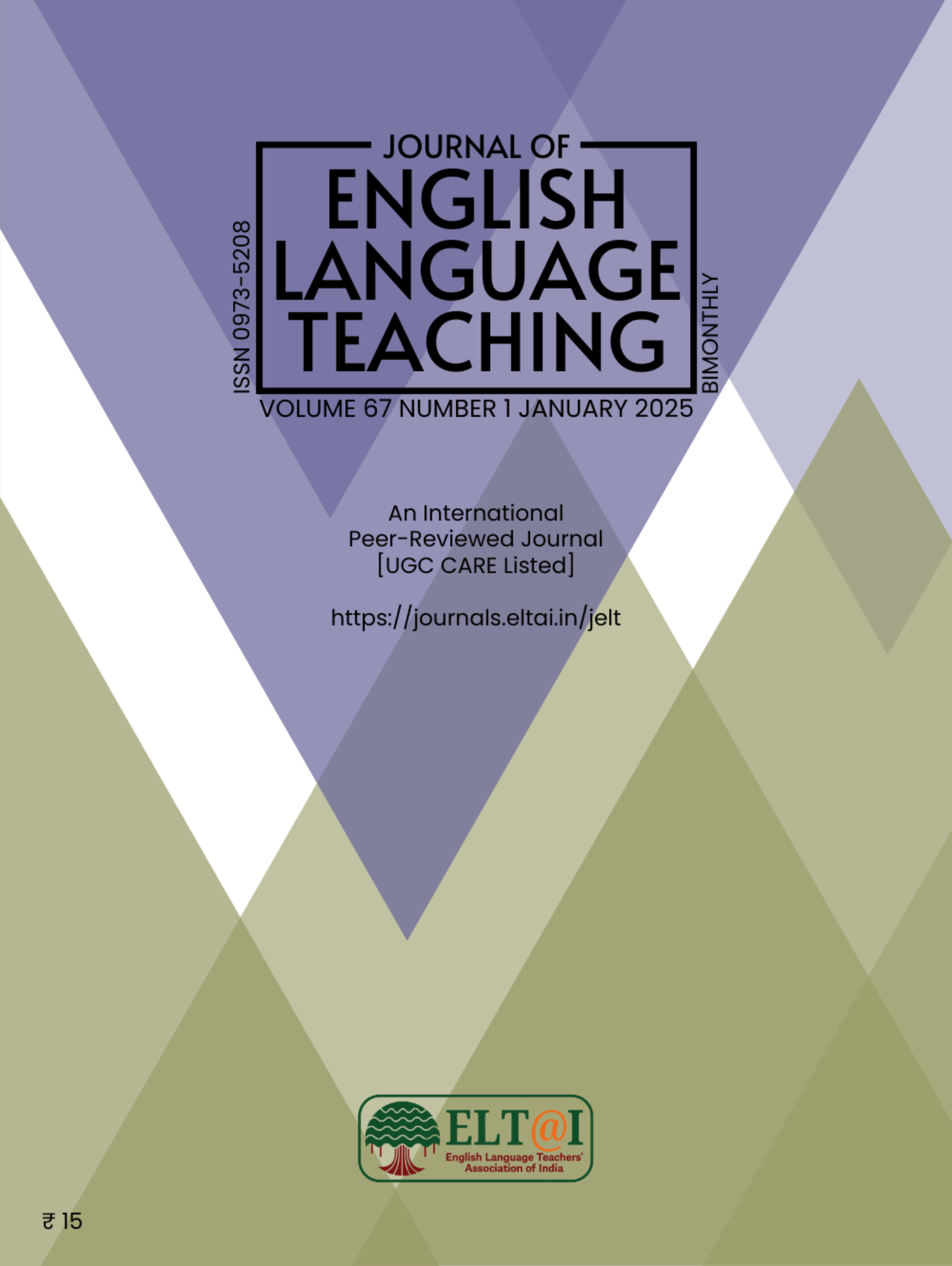Online Peer Feedback in ELT: A Bibliographic Coupling and Co-occurrence Network Analysis of WoS Indexed Articles from 2021 to 2024
Keywords:
Online Peer Feedback, English Language Teaching, Bibliometric Analysis, Web of Science, VOS viewer, Bibliographic couplingAbstract
Online Peer Feedback (OPF) has gained widespread popularity in language teaching and learning, due to its ease of access, adaptability, and flexibility. It has emerged as a potential field for achieving academic success in the digital era of language learning. This study aims to analyse the existing literature on OPF in English Language Teaching (ELT) by conducting a bibliometric analysis of articles obtained from the Web of Science Database published between 2021 and June 2024. A total of 215 relevant research papers were evaluated using VOS viewer software. The findings shed light on the co-occurrence of keywords from 215 research articles to observe the evolution of subject knowledge in the field of OPF in ELT. Furthermore, this study revealed the most-cited documents and conducted a bibliographic coupling analysis of the most-cited countries in this field.
References
Alemdag, E., & Yildirim, Z. (2022). Effectiveness of online regulation scaffolds on peer feedback provision and uptake: A mixed methods study. Computers & Education, 188, 104574.
Aria, M., & Cuccurullo, C. (2017). Bibliometrix: An R-tool for comprehensive science mapping analysis. Journal of Informetrics, 11(4), 959-975. doi:10.1016/j.joi.2017.08.007
Baharudin, M. D., & Razali, A. B. (2022). Discourse Analysis of ESL Undergraduate Students’ Patterns of Interaction in an Online Peer Feedback Environment to Develop Writing Performance. World Journal of English Language, 12(5), 283. https://doi.org/10.5430/wjel.v12n5p283
Cao, S., Wang, T., Zhou, S., Xu, Y., Zhou, T., & Luo, Y. (2022). A review of the ESL/EFL learners’ gains from online peer feedback on English writing. Frontier in Psychology, 13. https://doi.org/10.3389/fpsyg.2022.1035803
Caux, B. C., & Pretorius, L. (2024). Learning together through collaborative writing: The power of peer feedback and discussion in doctoral writing groups. Studies in Educational Evaluation, 83, 101379.
Gao, X., Noroozi, O., Gulikers, J. T. M., Biemans, H. J., & Banihashem, S. K. (2023). A systematic review of the key components of online peer feedback practices in higher education. Educational Research Review, 100588.
Guardado, M., & Shi, L. (2007). ESL students’ experiences of online peer feedback. Computers and Composition, 24(4), 443–461. https://doi.org/10.1016/j.compcom.2007.03.002
Huang, C., Tu, Y., Han, Z., Jiang, F., Wu, F., & Jiang, Y. (2023). Examining the relationship between peer feedback classified by deep learning and online learning burnout. Computers & Education, 207, 104910.
Kasch, J., Van Rosmalen, P., Henderikx, M., & Kalz, M. (2022). The factor structure of the peer-feedback orientation scale (PFOS): Toward a measure for assessing students’ peer-feedback dispositions. Assessment & Evaluation in Higher Education, 47(1), 15-28.
Lv, X., Xie, Y., & Ren, W. (2021). The Effects of Online Feedback on ESL/EFL Writing: A Meta-Analysis. The Asia-Pacific Education Researcher, 30(6), 643–653. https://doi.org/10.1007/s40299-021-00594-6
Patwary, M. N. (2023). Peer Feedback in Developing Writing in Tertiary EFL/ESL Education. Crossings: A Journal of English Studies, 14, 154–166. https://doi.org/10.59817/cjes.v14i.489
Sun, P., & Jun Zhang, L. (2022). Effects of Translanguaging in Online Peer Feedback on Chinese University English-as-a-Foreign-Language Students’ Writing Performance. RELC Journal, 53(2), 325–341. https://doi.org/10.1177/00336882221089051
Tam, A. C. F. (2024). Feedback providers’ contributions of and benefits from engaging in online peer micro-teaching feedback practices. Assessment & Evaluation in Higher Education, ahead-of-print(ahead-of-print). https://doi.org/10.1080/02602938.2024.2363328
Topping, K. (1998). Peer assessment between students in colleges and universities. Review of Educational Research, 68(3), 249–276.
Topping, K. J. (2023). Advantages and Disadvantages of online and face-to-face peer learning in higher education: A review. Education Sciences, 13(4), 326.
Xing, S. (2014). Application of Online Peer Feedback in the Teaching of College English Writing. Atlantis. https://doi.org/10.2991/icelaic-14.2014.94
Zhang, M., Liu, F., He, Q., Du, J., & Huang, B. (2022). Learners’ perceived advantages and social-affective dispositions toward online peer feedback in academic writing. Frontier in Psychology, 13(100485). https://doi.org/10.3389/fpsyg.2022.973478
